News
|
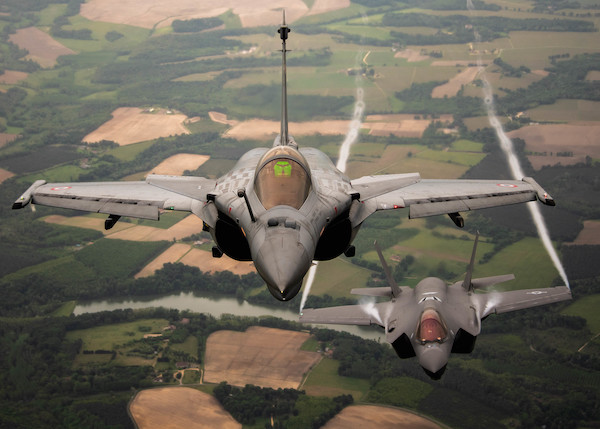 |
New data on international arms transfers—Ukraine the world’s biggest arms importer; United States’ dominance of global arms exports grows as Russian exports continue to fall
This month, SIPRI released new data on international arms transfers. The new data revealed that Ukraine became the world’s largest importer of major arms in the period 2020–24, with its imports increasing nearly 100 times over compared with 2015–19. European arms imports overall grew by 155 per cent between the same periods. The United States further increased its share of global arms exports to 43 per cent, while Russia’s exports fell by 64 per cent.
Read more | Read the SIPRI Fact Sheet | Access the SIPRI Arms Transfers Database
|
|
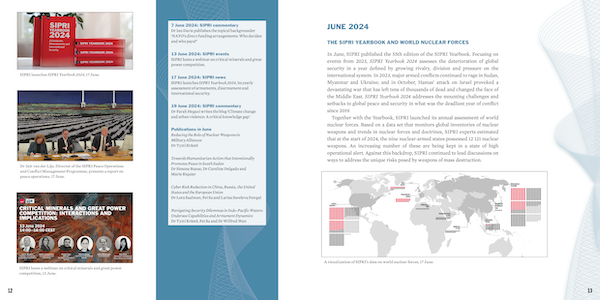 |
Annual Review 2024—out now
This month SIPRI launched its Annual Review 2024, which takes a retrospective look at the Institute’s activities and achievements in 2024. In a year marked by growing militarization, geopolitical division and escalating conflicts—including in the Middle East, Sudan and Ukraine—SIPRI continued to deliver on its mission by providing facts and evidence-based policy analysis and fostering dialogue conducive to a more peaceful future.
Read more | Download Annual Review 2024
|
|
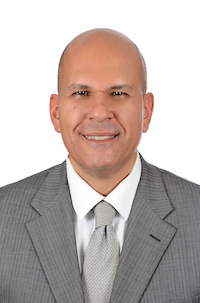 |
SIPRI appoints new Director
SIPRI is pleased to announce the appointment of Karim Haggag as its new Director. Haggag will assume his post on 8 September 2025. Karim Haggag currently serves as a Professor of Practice at the School of Global Affairs and Public Policy at the American University in Cairo. ‘We are extremely pleased to welcome Karim Haggag to SIPRI and look forward to his leadership and inspiring ideas,’ said Stefan Löfven, Chair of SIPRI’s Governing Board.
Read more
|
|
|
Upcoming events
|
SIPRI to co-host 2025 Armament and Disarmament Summer School
25–29 August 2025
SIPRI and the Alva Myrdal Centre for Nuclear Disarmament at Uppsala University, in cooperation with the Odesa Center for Nonproliferation, will host the 2025 Armament and Disarmament Summer School, to be held in Stockholm and Uppsala on 25–29 August. The summer school is both a course and a networking opportunity for the next generation of professionals in the field of disarmament, non-proliferation and arms control, aimed at supporting and reinvigorating disarmament education activities.
Read more
|
|
|
Recent events
|
SIPRI and the Stimson Center co-host event on international arms transfers
12 March 2025
SIPRI and the Stimson Center hosted a virtual discussion on recent trends in international arms transfers. The discussion drew from the insights of the latest data from the SIPRI Arms Transfers Database, covering trends in international arms transfers between 2015–19 and 2020–24. This data was released on 10 March 2025.
Read more | Watch the recording | Read about the new SIPRI data
|
|
SIPRI holds side event at United Nations expert meeting on autonomous weapon systems
5 March 2025
SIPRI held a side event at the first 2025 session of the Group of Governmental Experts related to emerging technologies in the area of lethal autonomous weapon systems (AWS). This session looked at bias in AWS and how this affects compliance with international humanitarian law. The side event featured speakers from SIPRI, the International Committee of the Red Cross and the governments of Pakistan, Panama and the United Kingdom.
Read more
|
|
SIPRI and partners convene Research and Action for Peace Network conference in Senegal
10–11 February 2025
The Research and Action for Peace (REcAP) Network, led by the West Africa Network for Peacebuilding in collaboration with SIPRI and the Danish Refugee Council, convened its third regional conference in Dakar, Senegal. Under the theme ‘Regional Cooperation and Coordination on Conflict Prevention, Peacebuilding and Prevention of Violent Extremism’, researchers, regional experts and civil society representatives came together for a series of roundtables, interactive workshops and presentations of REcAP Network publications.
Read more
|
|
SIPRI hosts workshop on the space–nuclear nexus
13–14 March 2025
SIPRI hosted a workshop in Stockholm on ‘The Space–Nuclear Nexus in Regional Contexts’. The workshop examined growing trends in cooperation on space and nuclear issues across states and regions, including in the context of formal alliances, defence pacts and broader strategic partnerships. This workshop was part of an ongoing research project to examine risks at the space–nuclear nexus, which is sponsored by the Ministry of Foreign Affairs of the Netherlands.
Read more
|
|
|
|
|
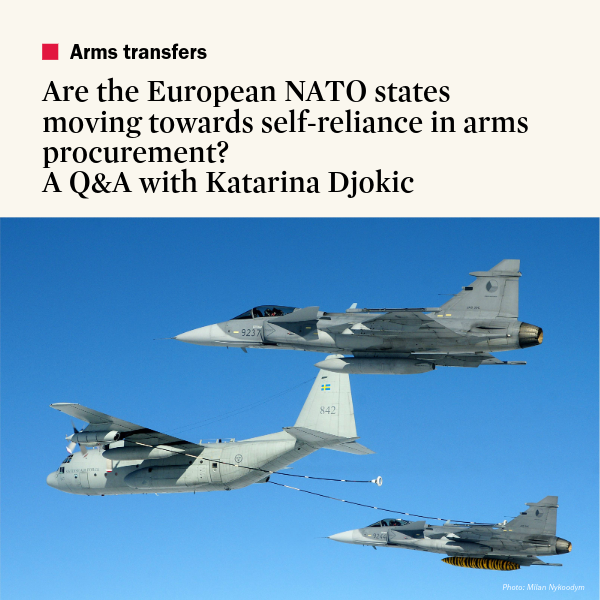 |
Are the European NATO states moving towards self-reliance in arms procurement? A Q&A with Katarina Djokic
Since the election of Donald J. Trump to a second presidential term in the USA, the question of Europe’s reliance on US arms imports and US security commitments has become ever more salient. SIPRI’s new arms transfers data reveals not only that arms imports by European states surged between the five-year periods 2015–19 and 2020–24, but also that the share of those imports that came from the USA grew markedly. In this Q&A, Katarina Djokic, Researcher in the SIPRI Arms Transfers Programme, examines the current status of arms imports in Europe, with a focus on the European members of NATO, as well as the considerations guiding their procurement decisions.
Read the Q&A
|
|
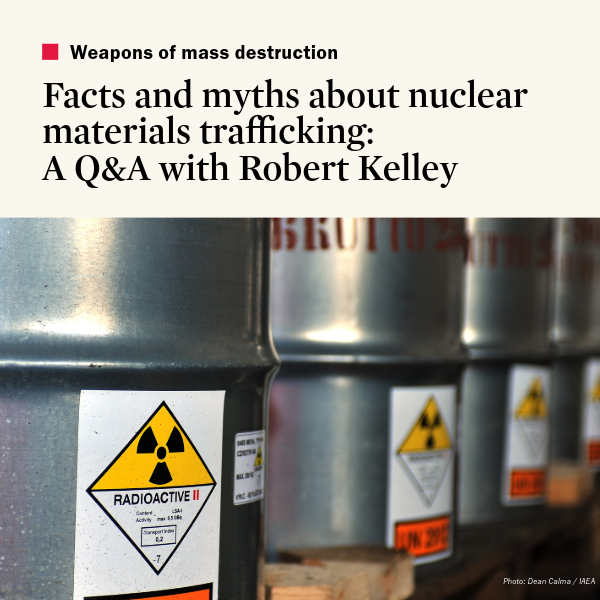 |
Facts and myths about nuclear materials trafficking: A Q&A with Robert Kelley
In January this year, a nuclear trafficking case made the international news headlines. The US Department of Justice announced that Takeshi Ebisawa, an alleged Japanese gangster, had pleaded guilty to charges of major narcotics trafficking as well as conspiring to traffic nuclear materials. The coverage of the Ebisawa case highlights questions about how the issue of nuclear materials trafficking is reported in the media, and how serious a security threat it really poses today. To separate the facts from the myths, SIPRI talked to nuclear expert Robert E. Kelley, a veteran of the US nuclear weapons complex, nuclear analyst and SIPRI Distinguished Associate Fellow.
Read the Q&A
|
|
 |
SIPRI experts were recently featured in these external outlets:
-
‘The relevance of dual-use export controls for Gulf States’, Lauriane Héau, published by PRISME as part of the SALAM project in March 2025.
-
‘Europe needs a new Nuclear Forces Reduction Treaty rather than a Eurobomb’, Ian Davis, published by Rethinking Security on 20 March 2025.
-
‘Rädsla för en rysk invasion speglar värsta scenario’, Tytti Erästö, published by Sydsvenskan on 20 March 2025 (in Swedish).
-
‘Military production in Russian official statistics of industrial output’, Julian Cooper, published by the Bank of Finland on 17 March 2025.
-
‘Armed conflict causes long-lasting environmental harms’, Florian Krampe, Joakim Kreutz and Tobias Ide, published by Environment and Security on 11 March 2025.
-
‘Bridging research and policy’, Florian Krampe, published by the Researching Peace podcast on 4 March 2025.
-
‘COP 16 conference made key steps towards a more just transition for indigenous peoples & peasant communities’, Caroline Delgado, published by IPS on 3 March 2025.
-
‘Shrinking space for Palestinian civil society: 2017–2022 and the war on Gaza’, Alaa Tartir, Jeremy Wildeman and Salma Shaheen, published by Broederlijk Delen in February 2025.
|
|
|
Publications
|
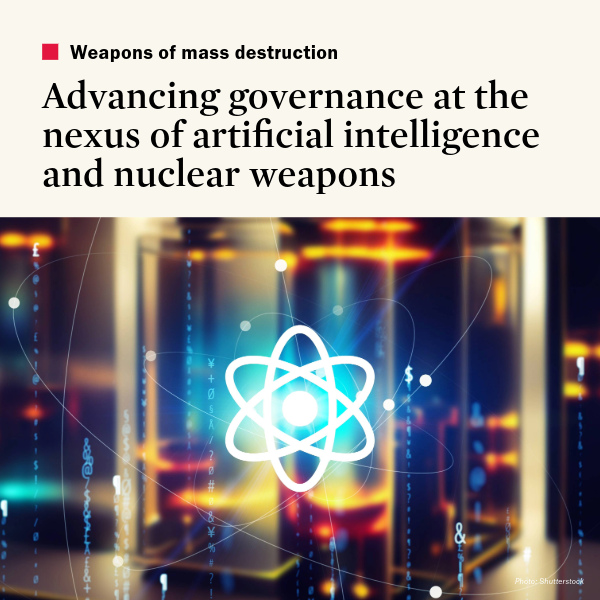 |
Advancing Governance at the Nexus of Artificial Intelligence and Nuclear Weapons
Rapid developments in artificial intelligence (AI) capabilities have driven government investment in efforts to explore their applicability in military contexts, including in nuclear forces. However, the use of AI in these systems would have an impact on deterrence practices and has the potential to upend strategic predictability and stability. This SIPRI Insights Paper assesses how current governance efforts can help to address risks associated with the integration of AI into nuclear forces. The paper identifies gaps in existing measures and investigates challenges that may hinder progress in AI–nuclear governance. It also proposes some potential pathways forwards.
Read the SIPRI Insights on Peace and Security
|
|
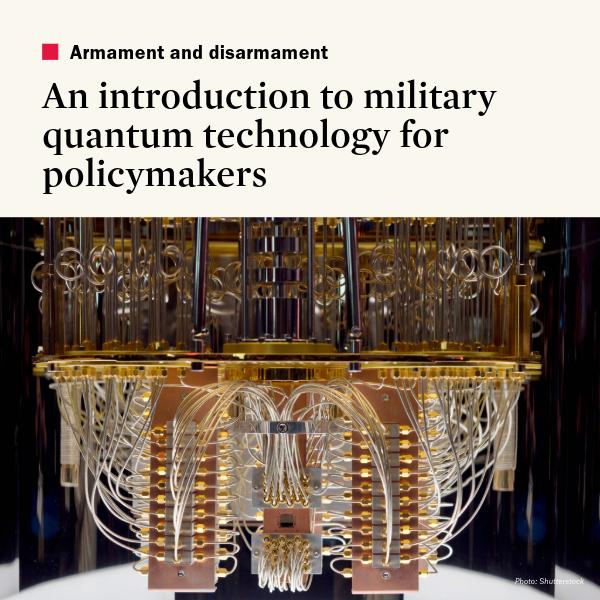 |
An Introduction to Military Quantum Technology for Policymakers
Quantum technology is undergoing a ‘second quantum revolution’. These advances promise major military and security benefits—such as ultra-secure communications, enhanced battlefield sensing and optimized logistics—but they also carry risks if adversaries gain a technological edge. This SIPRI Background Paper aims to provide a clear, concise overview of military-relevant quantum technology and discusses key military applications that are currently the most advanced or strategically significant. The paper provides military and security policymakers with an understanding of why quantum technology is strategically important, how it may reshape military capabilities and defence planning, and what steps might be necessary to navigate its rapid development and proliferation.
Read the SIPRI Background Paper
|
|
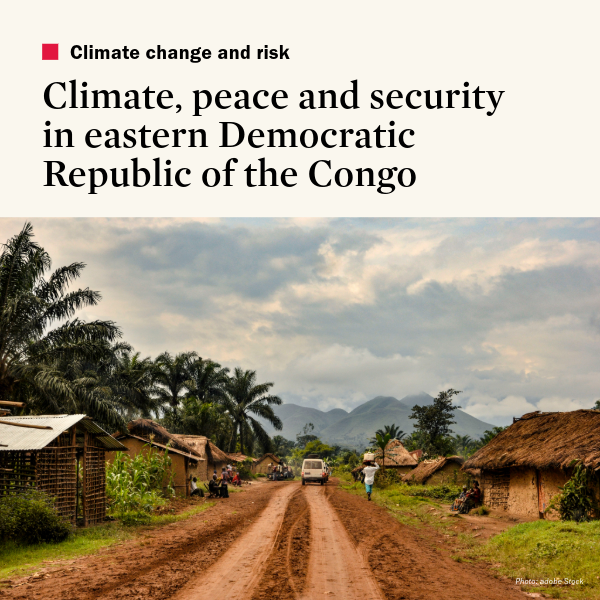 |
Climate, Peace and Security in Eastern Democratic Republic of the Congo
Local communities in eastern Democratic Republic of the Congo (DRC) face the combined challenge of climate change and violent conflict. This SIPRI Insights Paper examines how climate change interacts with existing vulnerabilities in North Kivu and South Kivu to heighten human insecurity and conflict risks. The findings highlight that the link between climate change and conflict is shaped by the governance and accessibility of natural resources such as land and water. This paper recommends integrating climate and environmental considerations into peacebuilding and stabilization efforts.
Read the SIPRI Insights Paper in English | Read the SIPRI Insights Paper in French
|
|
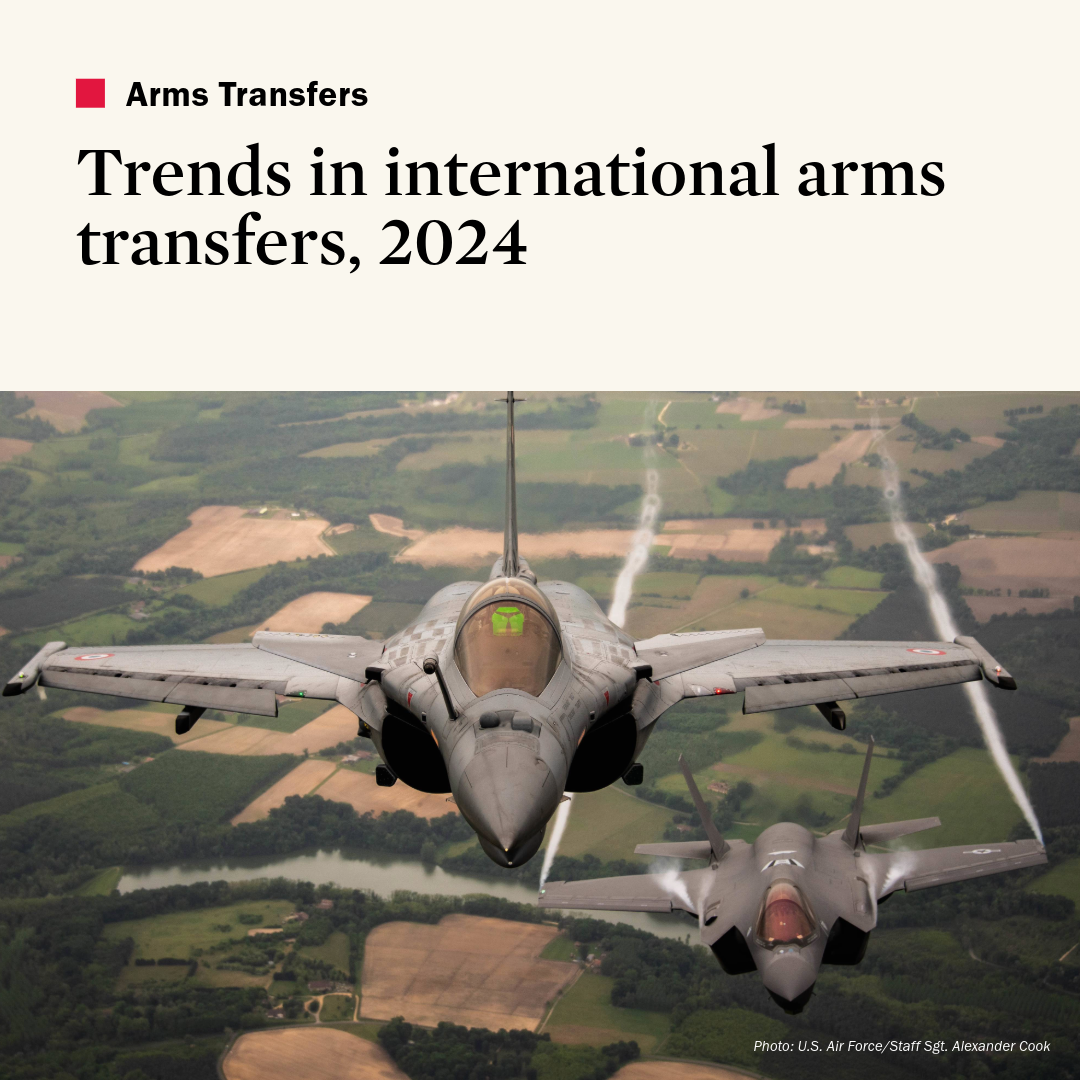 |
Trends in International Arms Transfers, 2024
Imports of major arms by states in Europe increased by 155 per cent between 2015–19 and 2020–24. However, there was almost no change in the global volume of arms transfers between the two periods (–0.6 per cent) because increases in arms transfers to Europe and the Americas were offset by overall decreases in transfers to all other regions. From 10 March 2025 the freely available SIPRI Arms Transfers Database includes updated data on transfers of major arms for 1950–2024. Based on the new data, this fact sheet presents global trends in arms exports and arms imports, and highlights selected issues related to transfers of major arms.
Read the SIPRI Fact Sheet
|
|
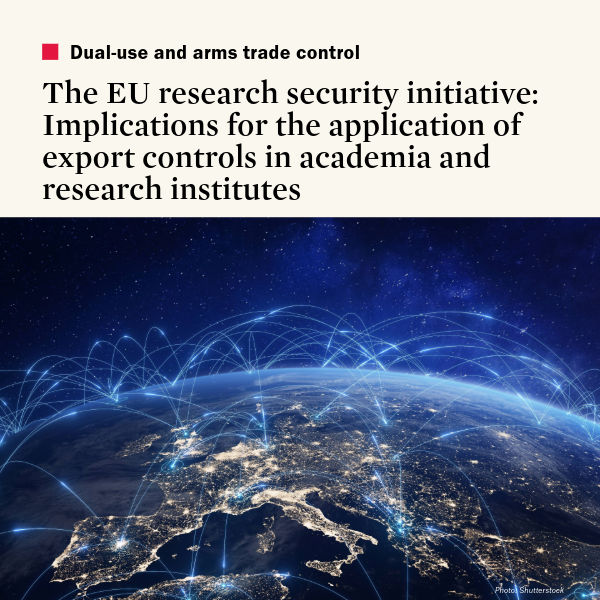 |
The EU Research Security Initiative: Implications for the Application of Export Controls in Academia and Research Institutes
An increasing number of states, including in the European Union (EU), are in the process of adopting measures to strengthen research security. In parallel, in May 2024 the EU Council adopted a recommendation on enhancing research security, referring to a range of EU and national policy instruments which could play a role in research security, including export controls. However, there have been challenges in applying export controls in academia and research institutes. This EUNPDC paper analyses the risks and opportunities that come with linking research security and export controls and makes recommendations for taking forward some of the proposed measures in the Council recommendation.
Read the report
|
|
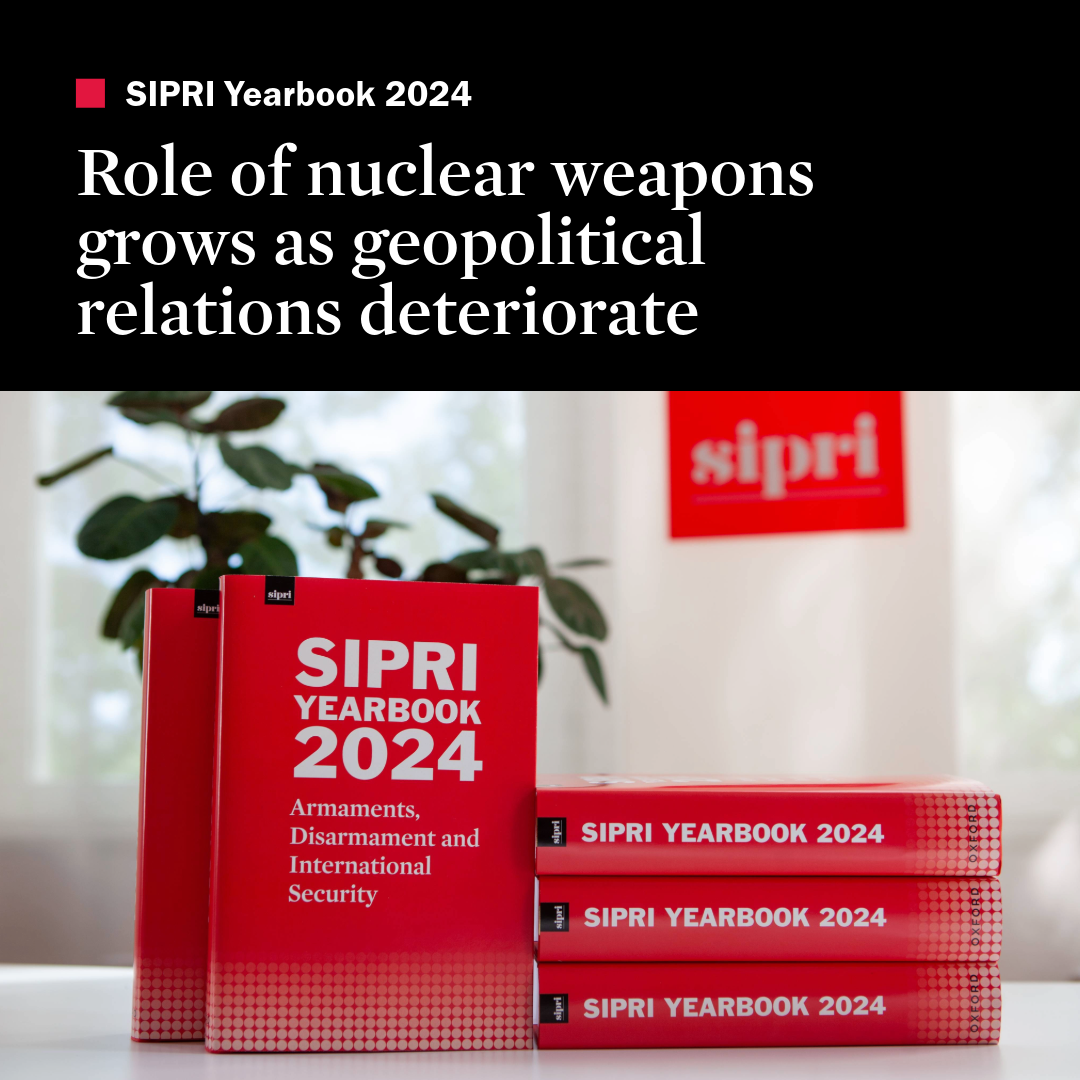 |
SIPRI Yearbook 2024
SIPRI Yearbook 2024 presents a combination of original data in areas such as world military expenditure, international arms transfers, arms production, nuclear forces, armed conflicts and multilateral peace operations, with state-of-the-art analysis of important aspects of arms control, peace and international security. In addition to its detailed coverage of nuclear arms control and non-proliferation issues, the latest edition of the SIPRI Yearbook includes:
- insight on developments in conventional arms control in 2023;
- regional overviews of armed conflicts and conflict management;
- in-depth data and discussion on military expenditure, international arms transfers and arms production; and
- comprehensive coverage of efforts to counter chemical and biological security threats.
Browse the contents page | Download the summary (PDF) | Download the sample chapter on world nuclear forces (PDF) | Download the introductory chapter (PDF) | Order SIPRI Yearbook 2024
|
|
|
|
Accurate, dependable information is more important than ever. Invest in the facts.
Support SIPRI
|
|
 |
| SIPRI is an independent international institute dedicated to research into conflict, armaments, arms control and disarmament. Established in 1966, SIPRI provides data, analysis and recommendations, based on open sources, to policymakers, researchers, media and the interested public. |
|
|